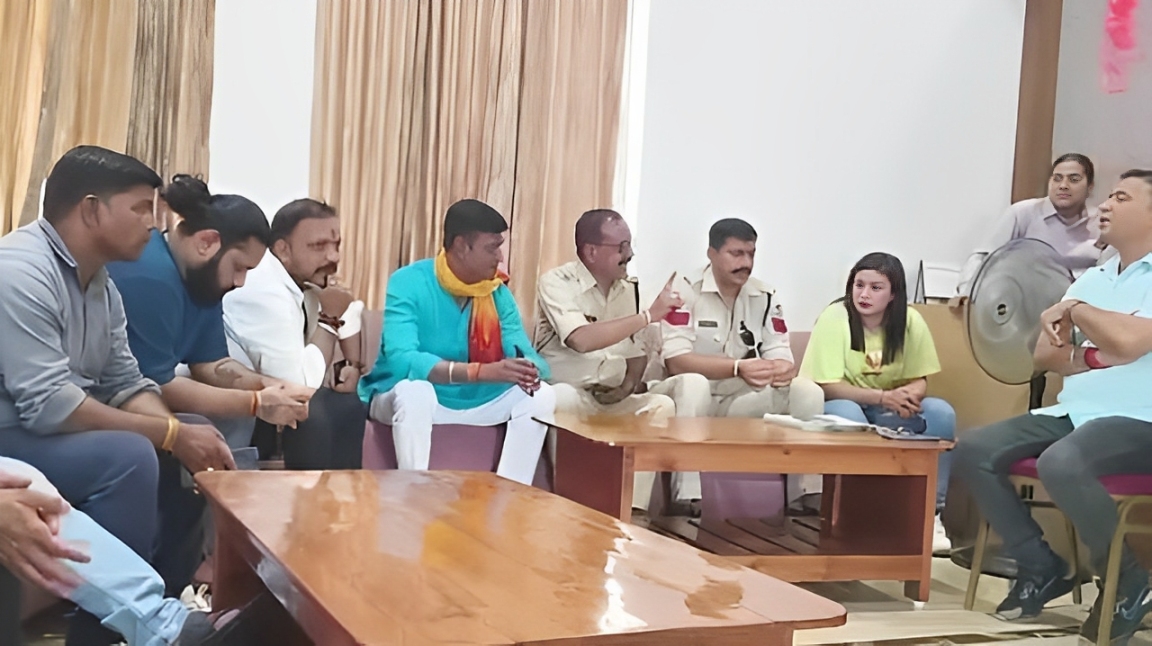
Elham Asaad Buaras
A police officer in central India is under investigation following the emergence of a video in which he appears to instruct a gym owner to deny entry to Muslim trainers and clients. The footage, widely shared on social media on June 1, has drawn national attention and renewed concerns over religious discrimination.
The officer, Sub-Inspector Dinesh Sharma of Madhya Pradesh Police, is heard in the video stating, “No Muslim will come here to give or take training. I have made it clear to you.”
The incident reportedly occurred on or around May 28 at a gym in Ayodhya Nagar, Bhopal. Members of the Bajrang Dal, a Hindu nationalist organisation, had raised objections to the presence of Muslim staff at the facility and contacted police.
Sub-Inspector Sharma was among the officers who responded. His comments, captured on video, have prompted allegations of bias and inappropriate conduct.
On June 1, Madhya Pradesh Police confirmed that an internal inquiry had been initiated. Sharma has been relieved of active field duties and reassigned to police lines pending the outcome.
The matter has been further politicised following remarks by Bhopal MP Alok Sharma of the ruling Bharatiya Janata Party (BJP), who voiced support for the officer. He stated that a list of gym trainers had been submitted to police and suggested that women clients should be trained only by female instructors.
“There is a Mohan Yadav-led government in Madhya Pradesh,” he said. “‘Love Jihad’ and ‘Land Jihad’ will not be allowed.”
The terms ‘Love Jihad’ and ‘Land Jihad’ are often used by right-wing groups to describe alleged efforts by Muslim men to convert Hindu women through relationships or to obtain land through fraudulent means. These terms are not recognised under Indian law but have gained visibility in certain political narratives.
The controversy comes amid the arrest of Mohsin Khan, a Muslim shooting coach in Indore, who is accused of sexually assaulting a female trainee during a rifle training session. While the investigation remains ongoing, some groups, including the Bajrang Dal, have made unverified claims suggesting broader misconduct. They allege that Khan targeted more than 150 Hindu girls, citing mobile phone data, though authorities have not publicly confirmed this information.
Several media reports have also referred to an alleged “systematic exploitation racket,” but these claims remain unsubstantiated.
Civil society groups, legal experts, and minority rights advocates have raised concern over the developments. They argue that religious profiling and directives that appear to target specific communities risk undermining constitutional protections.
Article 15 of the Indian Constitution prohibits discrimination on the basis of religion, race, caste, sex, or place of birth.
“This is not merely a case of misconduct by one officer,” said a senior constitutional lawyer based in Delhi. “When state officials act under social or political pressure, it challenges the principles on which the Constitution is built.”
Photo: Sub-Inspector Dinesh Sharma (centre) seen seated with Bajrang Dal activists at a private gym, where he is captured on video telling the owner, “Let me tell you clearly, no Muslim will come here — neither to provide training nor to receive it. (Credit: Screen grab/X)